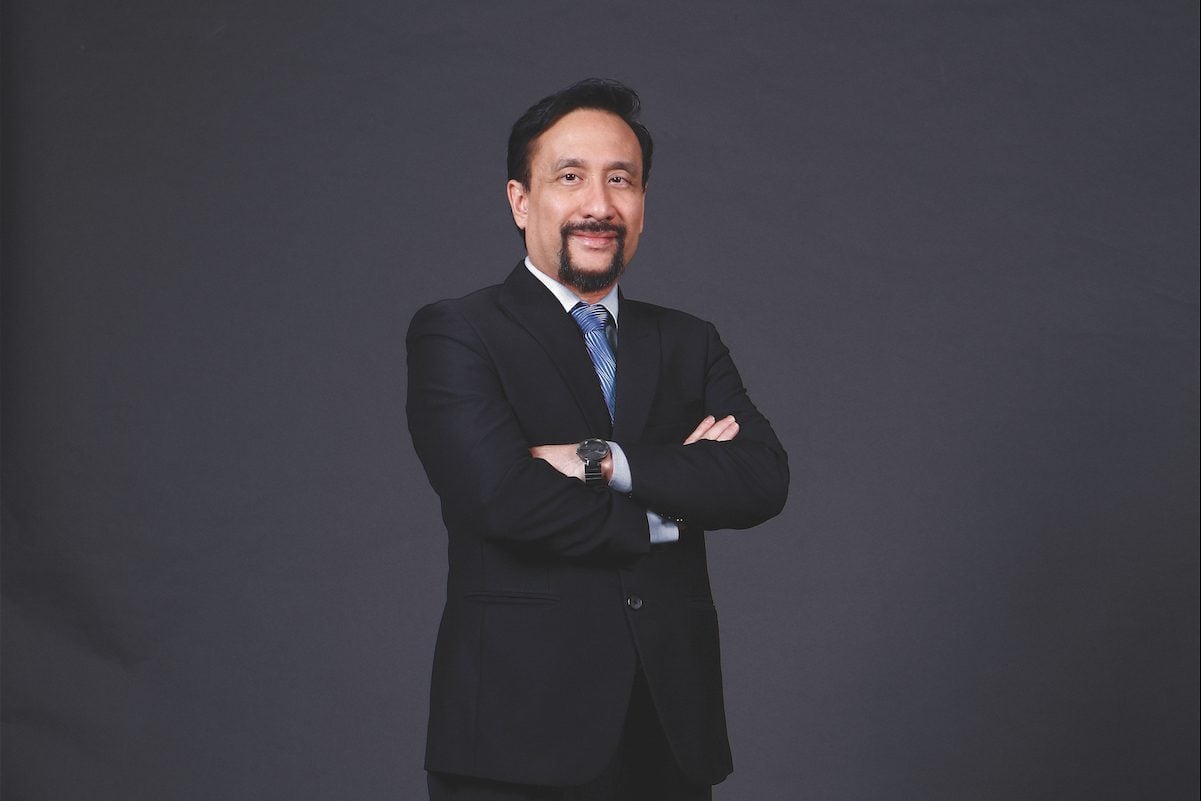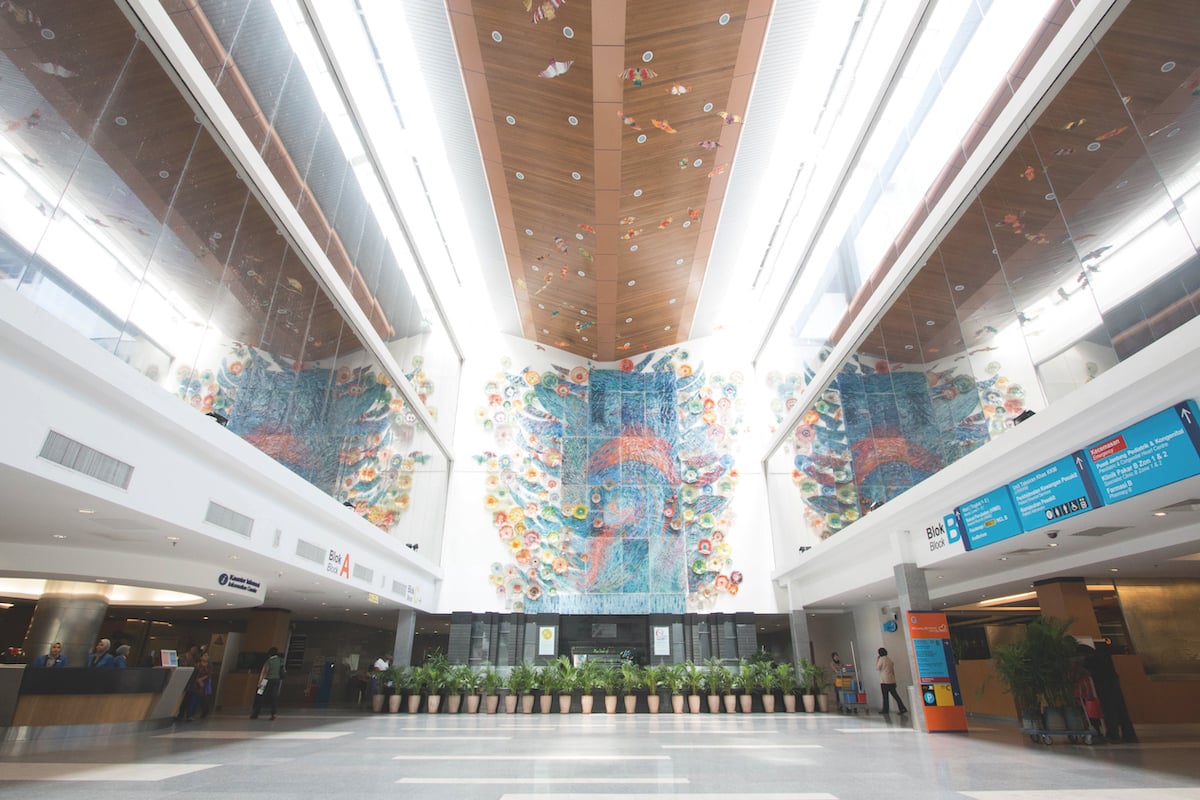Matters Of The Heart: Akmal Arief Mohamed Fauzi
With heart disease one of Malaysia’s leading causes of death, the work of Institut Jantung Negara is more important than ever. Deputy Group CEO Akmal Arief Mohamed Fauzi is determined to ensure nothing stops the organisation’s work – not even a global pandemic.
The healthcare sector is accustomed to making the most of a bad situation. Every day, healthcare workers are presented with dire situations and forced to deliver bad news, but each case is an opportunity to enhance someone’s wellbeing – or save a life.

When COVID-19 broke out, that eternal optimism saw a unique chance to improve operations and services. Healthcare institutes are businesses, after all, and there’s always room to improve. At Malaysia’s Institut Jantung Negara (IJN), or National Heart Institute, where peak performance is essential, self-improvement is more than just an aspiration.
"We should never stop thinking of better ways to do what we do," says IJN’s Deputy Group CEO Akmal Arief Mohamed Fauzi. "We need to continue our mandate as a centre of excellence and provide the best services to patients. Quality and patient safety have always been our utmost priority, and that’s why we need to reinvent and innovate."

IJN was established in 1992 as a heart specialist institution in response to the country’s growing rate of deaths from heart disease. In post-colonial Malaysia, communicable diseases such as cholera, malaria and tuberculosis pushed a developing health system to its limits. As standards improved, so did the picture of the nation’s health. Those diseases gave way to strokes and especially heart disease; even as recently as 2017, coronary heart disease accounted for 22.13 per cent of all deaths in the country.
Over almost 30 years, IJN has treated more than four million patients and become a beacon of cardiovascular and thoracic health. With 150 doctors, 461 beds, an innovative research and development division, and extensive training and education through IJN College, the organisation has expanded beyond its initial remit to become one of the region’s leading heart institutions and the largest single-set-up hospital in the Asia–Pacific region.

A veteran of multinationals and conglomerates, Akmal came to IJN in 2010 prepared to help it reach its financial potential. "It’s been an interesting journey," he says. "I’ve seen the company grow and I’ve seen projects and initiatives through from start to finish. Our reputation has remained solid. We want to be at the top of people’s minds when it comes to heart care."
IJN may be relatively young by industry standards, but Akmal believes it’s come a long way in a short time. "When people learn just how old, or young, we are, they’re surprised we’ve reached the standing we have," he explains. "But this is an organisation that thrives on human capital, and as we’ve expanded to accommodate that, we also hope that the quality and delivery of care has increased as well."
Growth was put on hold when COVID-19 hit Malaysia in 2020. Akmal concedes its arrival was a shock, but once the fog cleared, a path became obvious. "At first, you consider the worst-case scenario: the potential of this pandemic to impact lives and livelihoods," he shares. "But first and foremost, we needed to keep the heart centre running. Yes, there are many unknowns in a pandemic, but the more we understood the situation, the way out became clearer and clearer."
In response, IJN activated its business continuity plan, which laid out how work could continue through the crisis. "The importance of being agile and nimble during times of uncertainty is paramount," Akmal insists. "We are facing unprecedented circumstances where the situation is very fluid and we must quickly adjust. Patient care must continue."
IJN made the tough decision to push back a series of planned expenditures, including recruitment and expansions, into 2021, with the exception of those critical to operations. In their place came a variety of protective measures for staff. "People are such an important asset of the organisation, so we invested in personal protective equipment: masks, goggles, a safe front counter and other preventive measures," he recalls. "Staff are taking care of patients, so we have to make sure they’re just as protected."
"Once a patient arrives at our facility, the experience we provide is everything. Until that patient is out, the experience is what counts."
The need to refine and change operations also opened up an opportunity to digitise many processes. "In a pandemic, it becomes a top priority," Akmal says. IJN has already started working on an entirely digital medical record and hospital information system that’s on track for the first quarter of next year. "Our queue management system also required upgrading. We saw a chance to improve the customer experience at IJN, and automating that has become part of a mid-term, three- to five-year efficiency initiative."
The pandemic has also changed the way the organisation views its day-to-day investments. "If you’re buying medical equipment, you know what you’re getting. With IT systems, you can only be so aware of what the return on investment will be," Akmal points out. "But now, it’s much more apparent that it’s about efficiency. And, as we always say, efficiency means better patient care."
Although the worldwide rollout of COVID-19 vaccines is underway, Akmal warns the fight isn’t over. "It’s a work in progress," he says. "New strains are coming, we don’t know what else. But what we do know is that we have the experience of managing the facility during a pandemic."
That experience brings with it the confidence to march into an uncertain future with the resolve to serve a purpose: "We also know that whatever’s ahead, we must continue because those in need of heart treatment cannot be deprived."
In many ways, life at IJN goes on. IJN College continues to offer specialised courses in critical care and nursing, both for internal staff and those wishing to take their specialised cardiac care further. The organisation’s cardiovascular clinical research programs persist and, thanks to the digitisation initiatives put in place during COVID-19, Akmal believes a stronger IJN will emerge. "Once a patient arrives at our facility, the experience we provide is everything. Until that patient is out, the experience is what counts."
Proudly supported by: